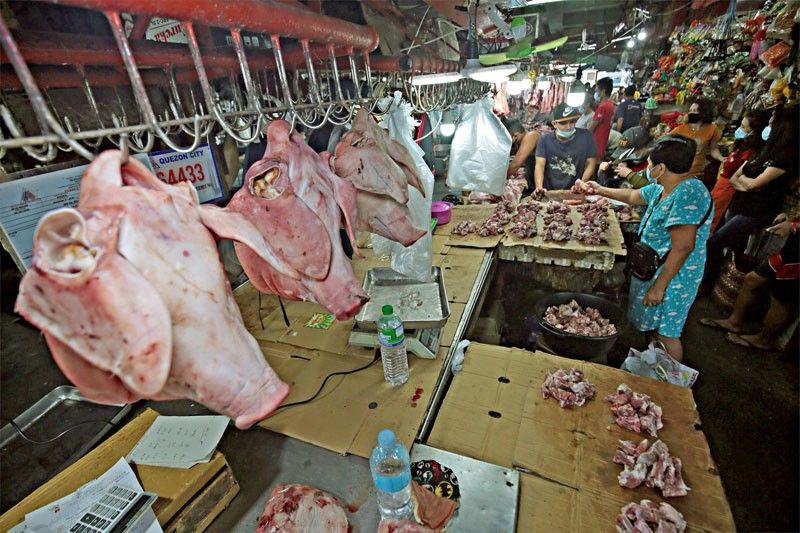Filipino meat lovers seen to dump more rice for pork by 2025

MANILA, Philippines — Soaring inflation is not deterring Filipinos from consuming more meat, a diet shift that also includes healthier options of fish, fruits and vegetables that are becoming more affordable with higher disposable incomes.
At present, the phenomenon helps explain the devastating impact of a pestering pork shortage and the higher retail prices it brings and consumers are enduring. With little alternative, Filipinos are not seen shifting away from pork which joins fish and chicken to outperform demand for more expensive beef.
The meat-to-rice ratio would shrink to 1.3.6 by 2025 from 1.4.2 in 2006, Fitch Solutions, a think tank, said in its latest report on Tuesday. Apart from lower rice consumption, the ratio translates to 36.6 kg of meat, regardless of kind, eaten on a per capita basis, from 29.3 kg nearly 2 decades ago.
Forecasts show an ongoing diversification in food choices among health-conscious Filipinos. While carbohydrates like rice would stay as a main staple, that share of grains is fast shrinking on the Filipino plate that has increasingly gone averse to large sugar intake over its potential health consequences.
Rising incomes will prompt this dietary change. Nominal wages rose 5.8% in the 12 years to 2018, the bulk of which is allocated to food. Compounding the earnings effect are better choices and access to nutritious food by a fast-growing rich and middle income Filipinos seen to account to 37.7% of the population by 2025.
The result is a food spending pattern dramatically tilting to proteins. Fish would corner 24.1% of food expenditures by 2025 from just 12.7% two decades ago. Fresh vegetables will account for 11.6% from 8.2%, while meat and poultry will increase to 22.3% from 17.5%. All, carbs from rice, bread or cereals begin decline to just a little over a fifth of spending from 36% in 2005.
“Fish, poultry and pork products will see significant consumption and spending growth as opposed to beef due to the significantly higher price inflation of beef products,” Fitch Solutions said. “Bananas will continue to be the top choice of fruit.”
However, dietary changes are not bound to happen overnight, and researchers still expect the Philippines to remain one of the top rice consumers in the region by that time. A slow turn to more protein-based diet also does not mean lower calorie intake, which is still forecast to go up based on serving sizes.
The good news is some of those future calories will be coming from fruits. Apart from bananas, which would occupy 36% of the fruit spending basket 2025 from 31% in 2006, larger amounts of apples (16%), citrus fruits (12%), stone fruits (4%), dried fruit and nuts (4%), and pears (2%) will also form part of the future Filipino diet.
That said, the report’s findings only confirm the strong influence of meat to inflation, which in recent months had been propelled on the ground by depleting pork supplies because a 2-year-old African swine fever had killed tons of pigs. Inflation had since steadied to 4.5% in March and April after a 2-year high of 4.7% in February, thanks partly to price controls that already expired, but the problem of tight supply remains and imports counted on as a more viable fix have yet to arrive.
Going forward, the research can also help inform government policies that under the Duterte administration have tilted heavily to food imports to keep local supplies stable. Over the weekend, government had made it cheaper for traders to ship in more pork and rice to the Philippines for a year to avert what they said is a looming global food shortage.
- Latest
- Trending

























